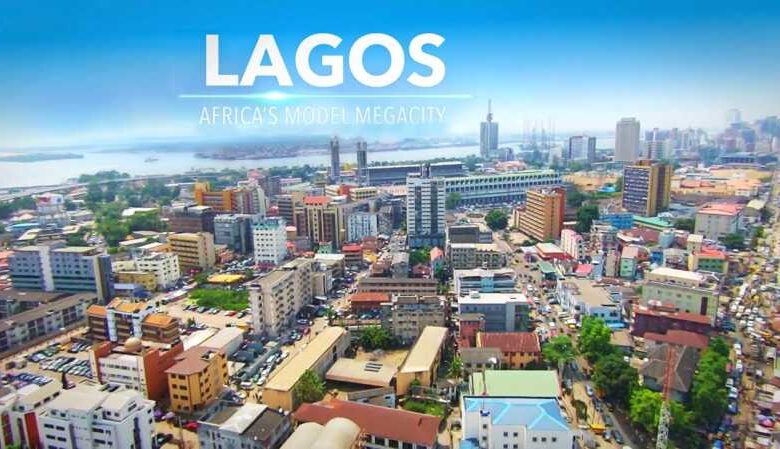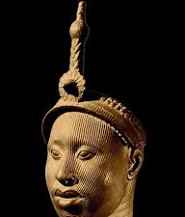Rebuilding Lagos

Unlocking historic cobwebs: Pains of Demolition and what Sanwo-Olu, Tokunbo Wahab need to do
By Adewale Adeoye
The Current challenge
There is a popular narrative on-going in Lagos: The ‘demolition’ of several buildings and homes. There are many ways perspectives to look at the issue. In the heart of the State Government, demolition can also mean ‘Rebranding or Rebuilding Lagos.’ For those whose homes are pulled down, at a time of harsh living conditions, it is the end of the world, if not suicide.
Let us face it. Lagos has a huge town planning challenge, the city’s geometric increase in population make matters worse. Lagos is the most populated city state in Africa. Johannesburg, the economic capital of South Africa is 5.635m; Cairo in Egypt: 22.623m. Lagos is one of the 10 most populated city in the world. It is both an asset, if well managed, and a liability, if poorly governed.
A brief History of Town planning Lagos
Since the eleventh century, Lagos has been top-notch in commerce and water transportation. Before the establishment of the Lagos colony on March 5, 1862, for more than 700 years, Lagos had flourished as a hub of international trade; fishing and farming with her own Awori local administrators and rulers.
Lagos became the capital of Nigeria in 1914, after it was moved from Lokoja to Calabar and then Lagos. The city ceased to be the capital of Nigeria in December 1991. For 77 years, Lagos was the capital city of Nigeria. The city gained her expanded sovereignty on May 27, 1967 when Lagos State was created to encompass Badagry, Ikorodu, Epe and the Mainland divisions.
Today, the city has moved to the blue light district of global city heritage. Lagos State has a gross domestic product of $84b which is $9b higher than the GDP of Ghana ($84b), that of Angola ($70) and that of Ethiopia ($93b). By May this year, Lagos GDP stood at N41tn with about 20 percent to Nigeria’s GDP. If Lagos is a country, it would be the 5th largest economy in Africa.
Urban and Regional Planning Challenges
One of the major challenges of Lagos is urban and regional planning in a lawless, corrupt environment. This was of concern to the city’s original Awori founders as it was of priority to the colonial successors.
The Awori indigenous town planning skill saw buildings concentrated on the riverbanks while the forests in the mainland were preserved for hunting animals being the major source of protein and for health, sourcing of herbs (Onigbongbo-Maryland-source of herbal medicine for example) health and for spiritual healing.
The Awori hardly cultivated the vast forests in the ancient times. The coming of Egba, Ijebu, Ikoyi, Owu, Oyo, Igbomina, which began around 1600 altered the original ancient architecture of the town due to increase in population pressure.
There is no debate: Avery great city needs good planning. Lagos needs great planning. It helps to improve quality of life by creating function spaces and time, helps in transportation, housing, urban and regional design, architecture and preservation of history. Lagos has the first phase of legislation on town planning dating back to 1863. The first act of demolition was in 1924 when slums were demolished due to outbreak of bubonic disease that took about 1,947 human lives. Since then, administrators of Lagos have been conscious to avoid the sprawling growth of slum in Lagos, the host of Nigerian most affluent citizens, but solutions have been half-hearted and kneel-jack.
Crisis of Housing and the Wahab Tokunbo Whirlwind
The military created more urban planning chaos through arbitrary award of land, places designated for recreation to cronies and rookies for 27 years. Industries came up in residential areas, clubs and dancing halls in places meant for health centres, spare parts markets in recreation slots, nigh-clubs near schools, all-night noisy churches and mosques built near psychiatric hospitals and homes built right on the canal. Lagos literarily became a jungle.
Lagos faces drastic demography flux. The city is, today, challenged by surging immigrants from across West Africa including people displaced due to war in the Magreb region or low scale war in some parts of Nigeria. The destination for millions of affected people is Lagos. This has led to bitter scramble for land and living spaces. The government needs to response to the challenge.
I believe this is the cobweb the people in power wants to unlock. There should be a human face to the rebranding. There is no one whose house is demolished that would be happy. I’m not happy that anyone would have his house pulled down.
Mr Tokunboh Wahab is dealing with institutional rot. He is confronting stiff-neck principalities. Recently, we were told 80 percent of houses at Lekki have no approval. It suggests that 80% of houses in
However, I want us to take not of one thing: It appears to me that the genuine and honest intention of Mr Wahab is not in doubt. He appears to be driven by passion and commitment to hard work and duty, a rare quality in Nigeria. So in essence, Mr Wahab may appear a great mind whose noble mission is likely to be misconceived if not technically driven. Some seen the quality of a conscientious personality in him.
I also feel strongly that if he were corrupt, his current demolition spree would have been tailored towards collecting bribe and making billions, but he is not doing that. On this note, he deserves credit.
We should all agree that an unplanned city is a both a source of ill health, chaos and and social upheaval. It muddles up transportation, public health, encourages flooding and shoots up crime.
Alternative Views from Critical Analysis
We may disagree on the strategy of dealing with the situation. No doubt, the Commissioner is dealing with an historic rot. Facing the hydra-headed, knotty problem is no easy task.
While demolition is a legal alternative for the government, a broader solution is needed, within the context of housing crisis and ruling class ineptitude.
The solution should lay short, medium, long solutions. One is the urgent need to overhaul the entire land tenure system, restructuring of land and property acquisition process and a total overhaul of the Land, Urban and Regional planning template in Lagos.
Pulling down homes at a very difficult time of economic meltdown does not automatically resolve the age-long contradictions of urban planning crisis in Lagos, though there are instances in which the Government is helpless in the overall good of the state. No one wishes to live under the bridge but propelled by the economic crisis. People living under the bridge are potential leaders of Nigeria.
The Government Share of the Blame
No doubt, successive Lagos Governments have their own share of the blame. There is no building without the knowledge of Government officials. They mark X and later come back to take bribe. The process of securing approval for building plans is riddled with corruption. This is a problem inherited form the time of the military.
For building approval, when you visit the Ministry, you are introduced to agents of civil servants. You pay to their private accounts. A large percentage of them are crooks. You may pay up to the pockets of five crooks before you secure a reliable agent who chooses his time and at his pleasure to deal with your requests. This is not to deny that there are honest civil servants in Lagos. We have some them that are deligent. However, the current system frustrates many whose hope of securing building approval diminishes with the passage of time.
A new Strategy is needed
Lagos requires a system that is efficient and not susceptible to graft. The starting point is that Lagos needs to take greater interest in land acquisition, ownership and distribution. No land or property should be sold without the knowledge and approval of the Government who should know who is selling and who is buying. This will make it difficult to sell illegal buildings to innocent people and will eliminate building in the wrong places. The state should have the right to question the legitimacy of any individual to buy a property if such individuals are crime suspects.
Lagos needs to invest in Land. Land should be one of the most strategic reserves of Lagos, buy up much of available land, and warehouse the private and community lands on behalf of the State Government. This is a huge investment for the State which is at liberty to sell the land and has the right to choose who to buy and what to build on them. It will be a huge source of revenue for the Government.
Lagos needs to be deeply involved in the design of individual and corporate houses or offices and in building of private and corporate outlets.
Lagos should not just be approving building plans, it should have departments with officials vested with the skill to design and build for individuals and corporate groups, a huge source of revenue for the state. It means that the State and each Local Government in Lagos should register Building and Architectural Firms and employ artisans and professionals on full time and part time bases. Individuals will be left with the choice to choose between Government designers, contractors or private actors, many of who are profiteers largely responsible for building collapse and substandard outlets across the state.The competition will improve quality of public and private buildings. This will solve the problem of delays in design approval and will eliminate the danger of substandard and illegal buildings. This is the surest way to ensure safety, adherence to rules and respect for the Lagos architecture ground norm. Leaving building design and construction at the mercy of individual whims and the discretion of corrupt speculators and agents of civil servants is perilous.
Lagos needs to make effective use of the airspace. What the city needs now are skyscrapers. I lived in an apartment in Pretoria, 25 storey-building, built by a Local Government. It is time to stop lock-up shops, two-story buildings by the Government. A plot of land could be sold by the Government to 20 families or individuals –for a 20 storey- each ready to build at the same time with each taking one floor on the basis of first-come-first served.
Mr Wahab should work with Local Governments, private architects and town planners and the Lagos State Property Development Corporation.
Where unfortunate incidence of demolition inevitably occur, the space should be for functional public use and not made redundant. If you demolish squatters under the bridge, you must turn the space to a beauty with police or Neighbourhood security posts.
Officials need to engage and educate the people on the gains of environmental design. This means constructive engagement with orgainsed social, cultural and artisan elements, especially the civil society in Lagos.
The current window of three-months is not enough. With over 80 percent illegal structures, the State has not enough human capacity to assist home owners within the shortest time given. It should be extended.
Lagos Needs Compensation from the Federal Government
Again, unlike in Europe and Asia, Lagos was paid nothing after the movement of the capital in 1991. The state should have been compensated in billions to deal with emerging risks and threats. The movement of German capital from Bonn to Berlin saw Bonn got 1.437 billion Euros. But as we speak, Lagos is yet to be given a dime. This is ridiculous amidst surging mass movement of people to Lagos from over the country seeking economic haven.
Adeoye is a CNN African Journalist award winner and Multiple winner of the Nigeria Media Merit Award,(NMMA)





